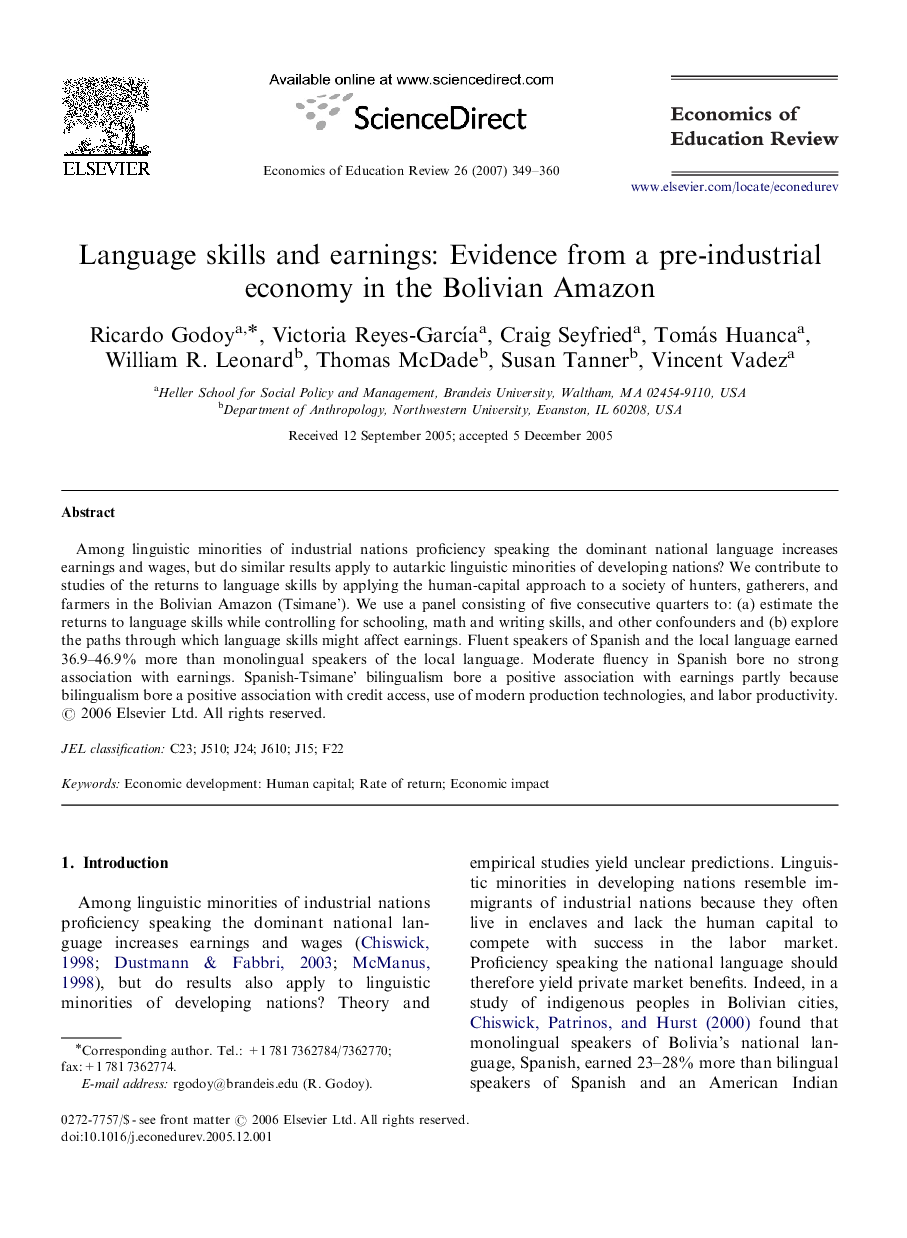| Article ID | Journal | Published Year | Pages | File Type |
|---|---|---|---|---|
| 355016 | Economics of Education Review | 2007 | 12 Pages |
Among linguistic minorities of industrial nations proficiency speaking the dominant national language increases earnings and wages, but do similar results apply to autarkic linguistic minorities of developing nations? We contribute to studies of the returns to language skills by applying the human-capital approach to a society of hunters, gatherers, and farmers in the Bolivian Amazon (Tsimane’). We use a panel consisting of five consecutive quarters to: (a) estimate the returns to language skills while controlling for schooling, math and writing skills, and other confounders and (b) explore the paths through which language skills might affect earnings. Fluent speakers of Spanish and the local language earned 36.9–46.9% more than monolingual speakers of the local language. Moderate fluency in Spanish bore no strong association with earnings. Spanish-Tsimane’ bilingualism bore a positive association with earnings partly because bilingualism bore a positive association with credit access, use of modern production technologies, and labor productivity.
